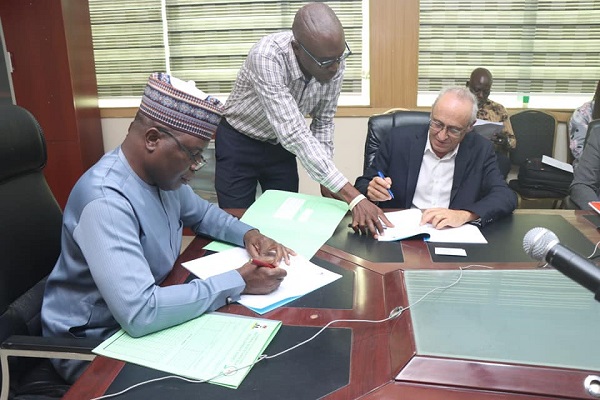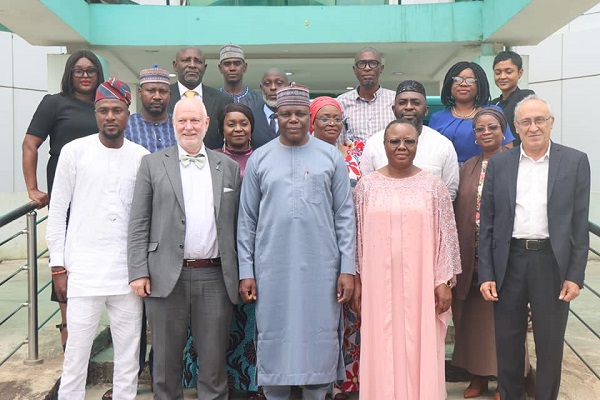
The National Biotechnology Development Agency (NABDA) has signed a memorandum of agreement (MOA) with Rahad Global Investment and its sister company and technical partner, RVD Equipment Morocco and Mesencell Biotech to enhance the development of biotechnology in Nigeria.
Speaking at the signing ceremony yesterday (September 6, 2022) in Abuja, the NABDA director-general, Prof. Abdullahi Mustapha said the focus of the agreement would be on four main components: oil tank farm cleaning, paraffin recovery and remediation of oil-contaminated soil, stem cell/regenerative medicine/immune-therapy, potable water and waste water treatment and management and organic bio-fertilisers and soil biodegradation.
“When you look at these, they are key to national development and we have started with the basic equipment. The laboratory is now going to be [compliant to] the world standard for research on stem cell regenerative therapy. This is also another milestone we have reached. This means that NABDA is going to be one centre you can point out to say you can come to for whatever problem to be solved in the country using stem cell regenerative therapy. We will research it and deploy it to the country,” he said.
Recall that Morocco and Nigeria signed a memorandum of understanding (MoU) on October 25, 2021, in Abuja, Nigeria, for the research and development of biotechnological products and processes, including the production of bio-fertiliser and bio-fungicide.
Rahad Global Investment Limited signed the agreement on behalf of Morocco, while the Nigerian Ministry of Science, Technology and Innovation signed on behalf of the Federal Government.
“Part of the MoU is to domesticate the technology here in the country for it to have a first-hand skill, ” the NABDA boss said.
Mustapha said scientists and researchers across the country would be properly trained on the use of the technologies.

Earlier in his remarks, the managing director, Rahad RVD industries, Chbihi Driss said subsidiaries of their group had developed four important technologies to Nigeria.
Driss said technologies include biotechnology for tank farm cleaning and soil bioremediation against pollution and biotechnological fertiliser to reduce the use of chemical products and increase the cultivable lands for self sufficiency in consumable products and fertiliser products.
“Others include waste water treatment to provide potable drinking water in high quality and to avoid the diseases transmitted by waste water that make pollution, as well as regenerative medicine, immunotherapy and vaccines for Nigeria and West Africa,” he said.
Similarly, the chief executive officer (CEO), Mesencell Biotech, Steven Kellener said regenerative medicine was the visionary of 21st century.
“We are bringing in all the new ideas and technology. So, I am the one that does all the regenerative medicine immunotherapy. We have seen a lot of increase in cancer development which means we are actively researching and doing cancer preventive treatment. The big issue is the development of vaccines. We’ve got a very big research project on malaria and HIV vaccines,” he added.


